
Table of contents:
- Author Sierra Becker becker@designhomebox.com.
- Public 2024-02-26 03:46.
- Last modified 2025-01-22 22:09.
When a beginner needlewoman first encounters knitting, she has a lot of questions. For example, how to choose yarn, tools, where to start. More experienced craftswomen are interested in learning how to knit a crochet with knitting needles. All these issues will be covered in the presented article.
Where does a beginner start?
It is clear that an experienced needlewoman will not tell her novice girlfriend what a crochet is, how to knit it and why it is needed. Perhaps this can be left for later. It is quite difficult to say which thing to knit first. Each needlewoman has a different level of skill, patience, attentiveness and accuracy. It is very important that the first experience in knitting does not cause absolutely no irritation, otherwise the desire to engage in such a craft will disappear for a long time.
It is recommended to study special literature, read master classes for beginners, consult with a person who has been doing needlework for some time. In any case, you will have to practice a little to pick up loops, learn how to knit the front and back fabric, close the row, and only then move on to morecomplex patterns. The first thing that can be made with knitting needles can be a simple scarf, jumper or pillow cover. It is important to start, enjoy it and develop your skill.

Yarn selection
When knitting, it is important to choose the right thread. For knitting needles, yarn of any thickness and with different components is suitable. It is advisable to buy more thread than indicated in the diagram. This is due to the fact that each pattern will require a different amount of yarn, so it is quite difficult to predict the consumption.
When choosing a consumable, it is important to pay attention to the twisting of the threads. If they are too tightly woven, then the hosiery can be slightly mowed. To check this, you need to unwind a piece of thread 100 cm long, put together the beginning and end. If the loop lazily twists 2-3 times, then the fabric knitted with a stocking pattern will not mow. If the thread will vigorously fold more than 10 times, then such yarn should not be chosen for such a rapport in order to avoid skew. Perhaps, if one of the components of the pattern is a crochet, then this problem will be avoided.
Also, the yarn should be checked for resistance to dyeing. To do this, take a piece of white fabric, roll it into a roll, over which the desired thread is wound (20-30 cm). You can do this with all the samples of yarn that will be involved in knitting. Rolls of fabric should be washed and dried rolled up. After that, you need to unwind the threads and make sure that they do not leave any marks after washing.
Choice of spokes
Knitting needles (hosieryneedles) for knitting can be divided into two categories: by shape and by material.
The form of this toolkit is divided into:
- circular (circular);
- straight.
The main materials for making knitting needles are:
- metal (aluminum, steel, duralumin);
- plastic;
- bamboo;
- tree;
- bone.

Tools should not be rough. Its surface should not contain notches, as this will interfere with knitting. You can create a variety of patterns with knitting needles with crochets on any toolkit. The main thing is that the thread slides easily and without difficulty.
All knitting needles are divided by numbers from 1 to 20. According to the craftsmen, it is rather difficult to work with thick tools due to the rapidly onset of hand fatigue.
In addition to the knitting needles, additional elements are used in the work:
- vintage loops;
- short curved needles;
- stitch holders or pins for removing open stitches;
- row counters;
- caps for long needles.
Preparing yarn for work
In order for the fabric to turn out beautiful, and some elements, for example, knitting needles, did not cause difficulties during work, craftswomen prepare yarn. It is important to do this correctly, first rewind the consumables into skeins. It is advisable to wash the threads, dry them and wind them into a ball. What is it for? In order to determine how the thread will behave during processing:stretch, warp, or shrink. After washing and drying while wearing, the thread will not give unwanted results.
It is most convenient to work when the yarn is wound on a bobbin or a Bulgarian ball. It is recommended to pull the thread from inside the skein.
If the yarn from one ball is over, it is recommended not to tie the end of the old bobbin and the beginning of a new one into a knot, but to put one on top of the other and knit several loops together. To avoid thickening in this case, skilled craftswomen advise to unwind the ends of the threads and only then lay one on top of the other. After creating the element of the thing on the wrong side, these “traces” should be fixed.
Knit and purl stitches
Finally, the conversation came to the immediate start of work. Before making any product, you should learn how to knit and purl, slipped and elongated loops, yarn over.

After the novice needlewoman has prepared the initial row, she should remove the first stitch and do not knit. The thread is located on the index finger of the left hand. The right needle is inserted into the second loop, grabs the yarn, pulls it through the stitch, which immediately descends from the left stocking needle. It turns out that the newly appeared element remains on the right side. Continue in this manner until the end of the row.
Advice from experienced crafters: do not tighten the loops too tight. It is better if the knitting is of medium density. Tight loops are difficult to pull out. And too loose stitches are uglylook on the finished canvas.

When purl weaving, the working thread is placed in front of the canvas on the index finger. The right needle is inserted from the back into the second stitch (the first is removed), the yarn is captured. Using the index finger of the working hand, you need to pull the thread through the loop and leave it on the main stocking needle. The row is knitted to the end.
Closing loops
To prevent the canvas from blooming, after finishing work on it, it is necessary to close the working loops. There are 2 common ways to secure stitches:
- Knit 2 stitches together in pattern. It turned out one stitch, which is sent to the previous knitting needle. Knitting 2 loops together and leaving the resulting new element on the left, the craftswoman will completely close the entire row.
- The hem loop needs to be removed. Knit the next according to the pattern. With the left needle, go over the resulting stitch on the right side to the hem, grab it. With the right stocking needle, pull the second loop through it and leave it in the same place.

Knit the next stitch according to the pattern. Repeat the steps to “capture” the first loop and return it to the left knitting needle. By doing such alternating manipulations with stitches, the needlewoman will be able to close the entire row. It does not matter if there is a front yarn in the last row, it will be possible to fasten the loops with knitting needles without damage to the knitted fabric.
Crochet
After learning how to create knit and purl stitchesthe needlewoman proceeds to the next step. Now the novice craftswoman will understand how to make a crochet with knitting needles and knit a unique pattern. As a rule, such techniques are used to create an openwork and patent pattern, a canvas with elongated stitches and a complex weave of threads.

Distinguish between similar loops "toward" and "away from you":
- Reverse yarn over. In another way, it is called "to yourself." In this case, it is necessary to pass the end of the main knitting needle under the working thread and grab the yarn from right to left.
- Straight yarn over. Otherwise, it is called "from oneself." The end of the main knitting needle is passed over the working thread and yarn is thrown over from left to right to form a loop.
The front stitch with such manipulations is knitted very easily. The wrong side must be held with a finger so that the loop does not come off during work.
How to knit a double crochet stitch with knitting needles is easy to understand. The main thing is to work out this technique in practice.
Recommended:
Beautiful and original skirts for girls with knitting needles (with descriptions and diagrams). How to knit a skirt for a girl with knitting needles (with a description)
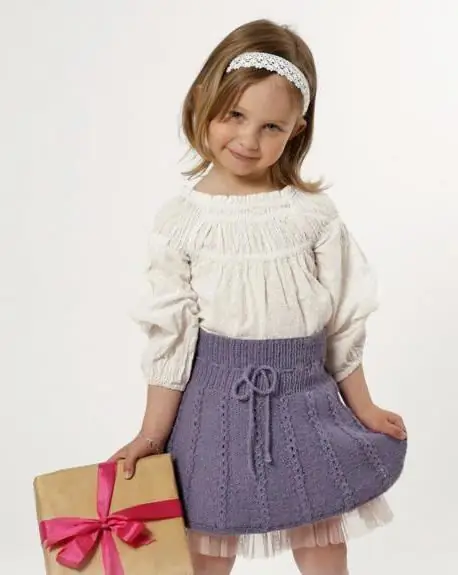
For a craftswoman who knows how to manage yarn, knitting a skirt for a girl with knitting needles (with or without a description) is not a problem. If the model is relatively simple, it can be completed in just a few days
Knitting from mohair with knitting needles. Knitting needles: schemes. We knit from mohair
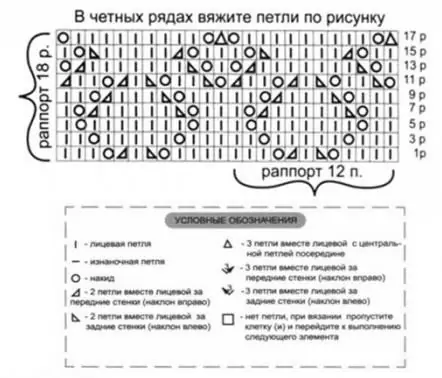
Knitting from mohair with knitting needles brings real pleasure to needlewomen, the result of which are light, beautiful things. Readers can learn about the properties of this thread and the features of working with it from this article. Also here are descriptions of the execution of mohair garments and photographs of finished products. Focusing on them, craftswomen will be able to knit beautiful warm outfits for themselves and their loved ones
Knitting - knitting sleeves. Knitting sleeves on top with knitting needles. Crochet sleeves
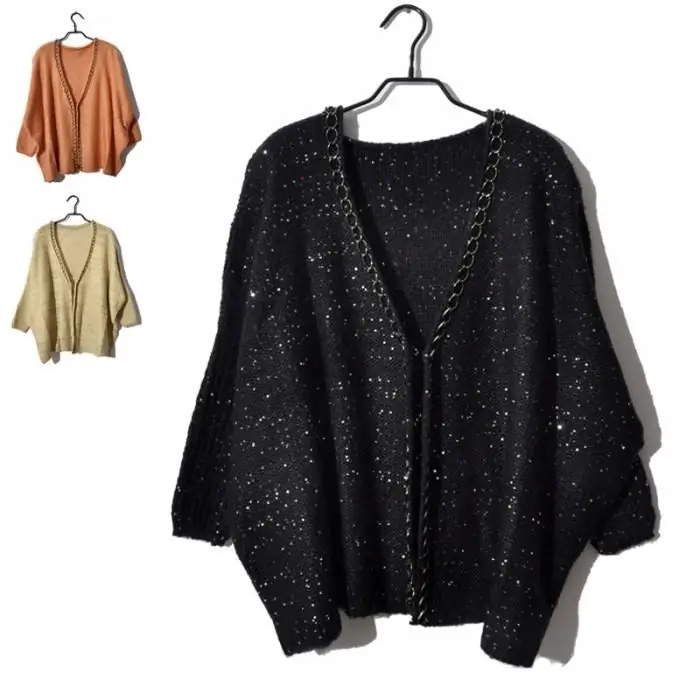
The sleeve has always been considered the most difficult place in knitting, but in fact there are many options from which you can choose the simplest and most suitable
How to finish a hat with knitting needles? How to knit a hat with knitting needles: diagrams, description, patterns
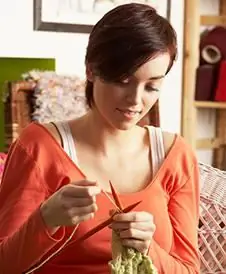
Knitting is an interesting and exciting process that can take you long evenings. With the help of knitting, craftsmen create truly unique works. But if you want to dress outside the box, then your task is to learn how to knit on your own. First, let's look at how to knit a simple hat
Japanese bactus needles. Openwork bactus knitting needles. How to tie a bactus? Knitting needles and our instructions will help you
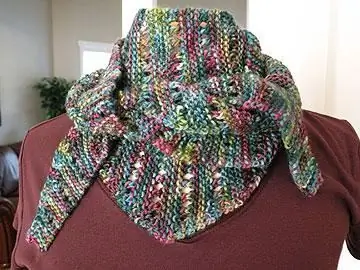
Every day such an unusual accessory as an openwork bactus becomes more and more popular. A knitted or crocheted knitted product looks not only unusual, but also very beautiful
